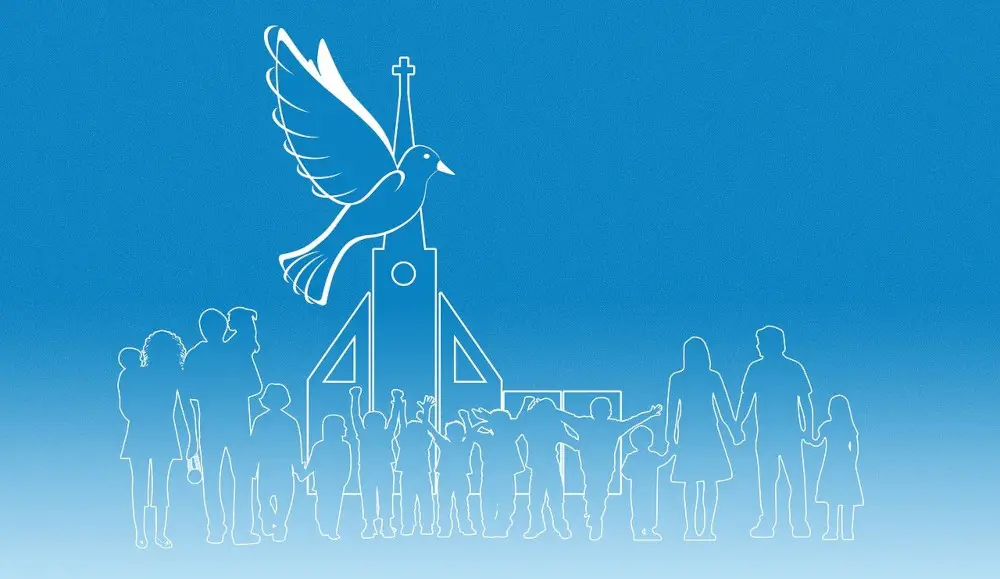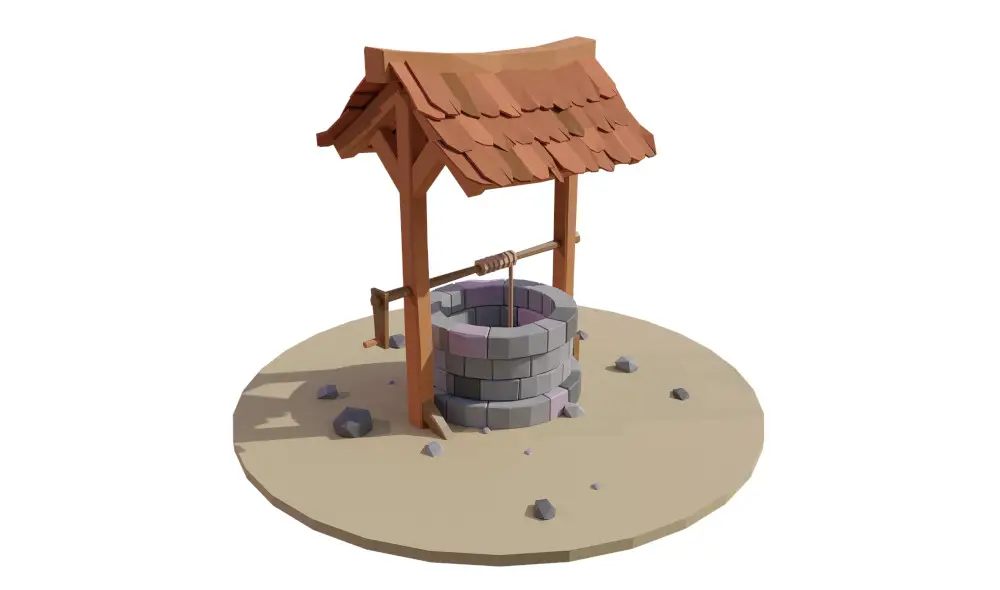A Divine Encounter
Imagine a dusty road on a hot day in ancient Samaria. Jesus, wearied from his journey, rests by an ancient well. A Samaritan woman approaches to draw water, and an extraordinary encounter unfolds.
When the woman expresses surprise that Jesus, a Jew, would speak to her, he seizes the opportunity to reveal profound truths.
“If you knew the gift of God and who it is that asks you for a drink, you would have asked him, and he would have given you living water.”
John 4:10 (NIV)
biblegateway.com
Perplexed, the woman questions how Jesus could provide this “living water” without a bucket or access to the deep well.
Yet, Jesus speaks not of physical water but of the eternal life and spiritual nourishment he offers.
“The water I give them will become in them a spring of water welling up to eternal life.”
John 4:14 (NIV)
biblegateway.com
The New Birth and the Baptism of the Holy Spirit

This exchange at the well unveils a critical distinction – the difference between being born again and receiving the baptism of the Holy Spirit.
The new birth, made possible by Christ’s sacrifice, provides salvation and the indwelling of the Holy Spirit (Romans 8:9).
However, the baptism of the Holy Spirit empowers believers to be effective witnesses, endued with power from on high (Acts 1:8).
The Book of Acts recounts numerous instances where believers received this spiritual baptism, often accompanied by speaking in tongues and other manifestations of the Spirit’s power (Acts 2, 8, 10, 19).
Just as Jesus promised the living water that quenches spiritual thirst eternally, the Holy Spirit’s infilling equips believers to be rivers of living water, bringing life and refreshment to a spiritually parched world (John 7:38-39).
The Well of the Spirit

In his encounter with the Samaritan woman, Jesus masterfully employed the metaphor of a well to illustrate the vast resources available to those who put their faith in him.
“The water I give them will become in them a spring of water welling up to eternal life.”
John 4:14 (NIV)
biblegateway.com
This well, the indwelling Holy Spirit contains the strength, wisdom, love, and very plan of God, ready to be drawn upon by those who understand and depend on the Spirit’s presence.
The Proverbs affirm:
“Counsel in the heart of man is like deep water, but a man of understanding will draw it out.”
Proverbs 20:5 (NKJV)
biblegateway.com
The well is there; the question is whether we will draw from its depths.
Accessing the Riches Within

Tragically, many Christians remain unaware of or fail to access the fullness of what God has provided them in Christ.
Like the Samaritan woman, they gaze into the deep well, lamenting:
“Sir, you have nothing to draw with, and the well is deep.”
John 4:11 (NKJV)
biblegateway.com
They passively wait for God to “spoon-feed” them, unaware that the resources have already been given.
The Apostle Paul admonished the Corinthian believers, “All things are yours” (1 Corinthians 3:21), echoing the truth that:
“God has blessed us with every spiritual blessing in the heavenly places in Christ.”
Ephesians 1:3 (NKJV)
biblegateway.com
Too often, we, like the elder son in the parable of the prodigal (Luke 15:11-32), accuse God of withholding blessings when, in reality, we have failed to draw upon what has already been provided.
The Prodigal Son Analogy

In this parable, Jesus illustrates God’s lavish grace and desire to bless his children, even those who have wandered.
When the prodigal son returns in repentance, the father joyfully restores him, providing a robe, a ring, and a celebratory feast.
Yet, the elder son, representative of those who have faithfully served God, grows indignant at this display of mercy.
He accuses his father, saying:
“You never gave me a young goat that I might celebrate with my friends.”
Luke 15:29 (ESV)
biblegateway.com
The father’s response is profound:
“Son, you are always with me, and all that is mine is yours.”
Luke 15:31 (ESV)
biblegateway.com
The blessings were always available; the son need only partake.
Like the elder son, we often lament our spiritual poverty while failing to appropriate the riches freely given to us in Christ.
God has no desire to withhold from his children but longs for us to boldly “draw out” the resources he has provided.
Key Takeaways
- The new birth and the baptism of the Holy Spirit are distinct experiences, with the latter empowering believers for effective witness and service.
- The indwelling Holy Spirit is a well of living water, containing the strength, wisdom, love, and every plan of God, ready to be drawn upon.
- Many Christians fail to access the fullness of what God has provided, passively waiting for God to “spoon-feed” them instead of actively drawing from the well.
- The parable of the prodigal son illustrates God’s desire to bless and restore his children, even those who have wandered, and his readiness to freely give what is already ours in Christ.
- To experience the abundant life God intends, we must actively draw upon the resources of the Holy Spirit, the living water that quenches our spiritual thirst and enables us to be rivers of refreshment to others.
Conclusion
As you journey through life, seek God’s plan through prayer, study of his Word, and obedience to his leading.
Though his ways may seem mysterious at times, trust that he is working “all things together for good for those who love God, who are called according to his purpose” (Romans 8:28).
By actively drawing upon the living water of the Holy Spirit, you can uncover and walk in the riches of God’s plan for your life.
Frequently Asked Questions
Q. What is the difference between being born again and receiving the baptism of the Holy Spirit?
A. Being born again refers to the experience of salvation, where the Holy Spirit comes to dwell within the believer (Romans 8:9).
The baptism of the Holy Spirit is a subsequent experience that empowers believers for effective witness and service, often accompanied by speaking in tongues and other manifestations of the Spirit’s power (Acts 1:8, 2:4).
Q. How can I draw from the “well of the Spirit” within me?
A. To draw from the Spirit’s resources, cultivate an attitude of dependence and obedience. Study the Word to grasp the riches available in Christ. Pray and yield to the Spirit’s leading. Step out in faith, allowing the Spirit to work through you as you minister to others.
Q. What if I don’t feel like God has blessed me or provided for me?
A. Like the elder son in the parable, we may accuse God of withholding blessings when, in reality, we have failed to appropriate what he has already given.
Examine your heart, repent of any unbelief or ingratitude, and begin actively drawing upon the resources God has made available in Christ.
Q. How can I be sure that God has a plan for my life?
A. The Bible makes it clear that God has an eternal plan and purpose, not only for humanity as a whole but for each individual believer.
“For we are his workmanship, created in Christ Jesus for good works, which God prepared beforehand, that we should walk in them.”
Ephesians 2:10 (ESV)
biblegateway.com
Trust that God, who formed you in the womb (Jeremiah 1:5), has a unique plan for your life.






